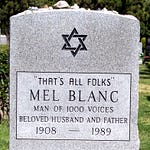
commence — a verb that simply means “to begin” or “to start”
comenzar — the Spanish verb cognate of the same meanings
The French verb is “commencer,” and that’s where we took our word from. Strangely enough, these words go back to Latin’s initiare which clearly means “to initiate,” which also means “to start” or “to begin” something. I say “strangely enough” because “commence” doesn’t look like it’s a relative of “initiate,” but it is.
When I was teaching Spanish for 30 years, I would try to point out the very obvious cognate connection between “comenzar” and “commence,” but American English-speaking teenagers don’t use “commence;” they use “begin” and “start,” so they struggled to learn and remember the verb “comenzar” in Spanish even though it should be easy to recall if you know and use the verb “commence” in English already.
The only connection they had to the verb “commence” was the noun “commencement,” and they were only familiar with that in association with graduation each year. Since graduation falls at the end of the year and at the end of students’ education, whether it be from high school or college, the kids equated the word “commencement” with an “ending” and NOT with a “beginning.” I would point out that it was the “beginning” of the rest of their lives, so that’s why it was called that.
Sometimes that helped, but only if the kids remembered me saying that — which meant that they would have had to have been paying attention in class.
I would have to resort to saying, “Let us commence” (“Comenzamos”), at the beginning of classes to help the students learn the English verb and get them to connect it to “beginnings” and not “endings.
The “commencement” or “beginning” of something in Spanish is “el comienzo.” The word “comienzo” is also the first-person singular present-tense conjugation of “comenzar.” “Comenzar” is what’s known as a stem-changing verb in its present-tense conjugation.
Thus, you would say:
“Comienzo” for “I begin;” “comienzas” for “you begin;” “comienza” for “he begins” or “she begins” or (formal) “you begin;” “comenzamos” for “we begin;” and “comienzan” for “they begin” or (plural) “you begin.”
Learning the conjugation helps you remember both that first form of the verb as well as the noun — comienzo.
As the New Year commences tomorrow, I hope you greet its commencement with joy and have set attainable resolutions and goals to make the most of 2025.
Comenzamos!
Feliz Año Nuevo!
Until next time and next year. Since the new year divides this week, this post is the free one for January. Won’t you consider upgrading to paid and give yourself 52 weekly posts of “Cognate Cognizance” instead of only 12 free monthly ones? If so, your lexicon will thank you, and so will I. You also will have access to the audio recordings of each episode as well as the full archive of over 200 posts.
Tammy Marshall













Share this post